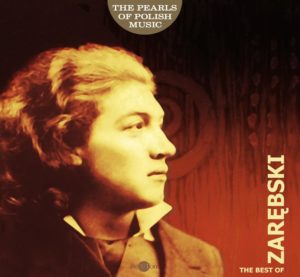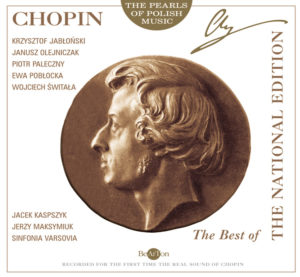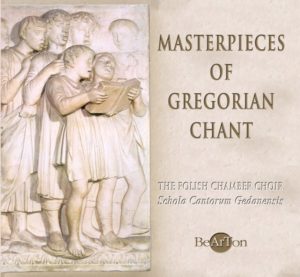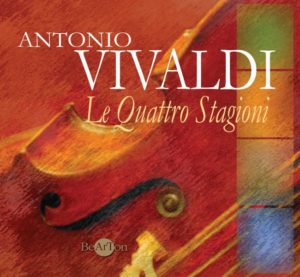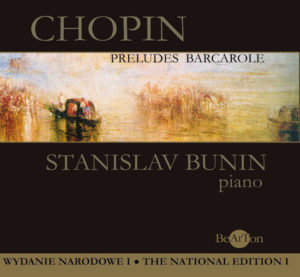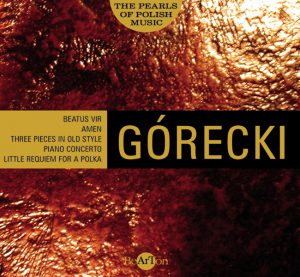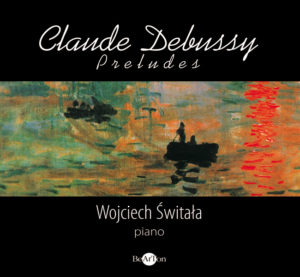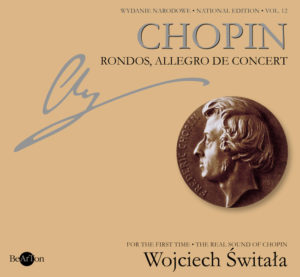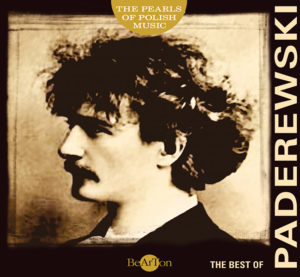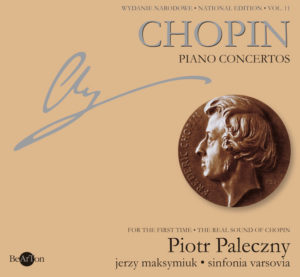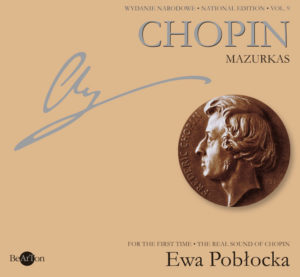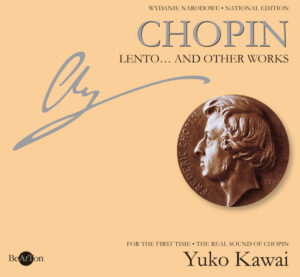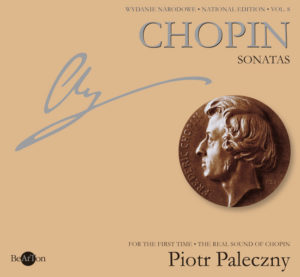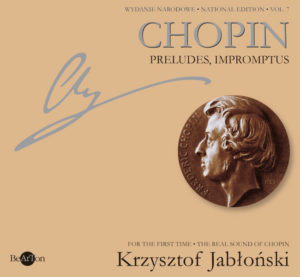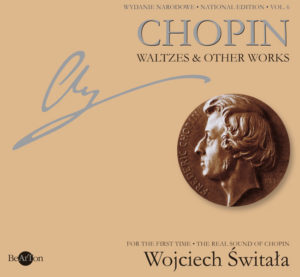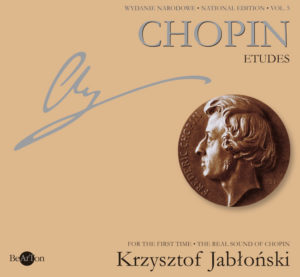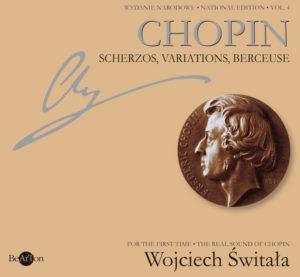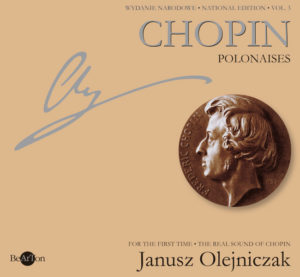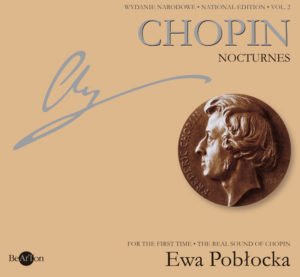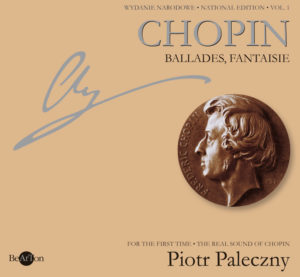The best of Paderewski
The best of Paderewski
Cat. No. CDB018 – 1944318
Music disc: CD-AUDIO
Composer:
Ignacy Jan Paderewski
Performers:
Piotr Paleczny – piano
Orchestra Sinfonia Varsovia
Jerzy Maksymiuk – conductor
CD content:
- Polish fantasy for piano and orchestra op.19 – 22’15”
Piano concerto in A minor op.17
- Allegro – 16’45”
- Romanza. Andante – 9’25”
- Allegro molto vivace – 8’01”
Total time – 56’41”
Listen a part
47.99złAdd to cart
© ℗ 2001 Bearton
Ignacy Jan Paderewski (1860-1941)
The history of Poland knows very few people as colourful and of such merit for the country as Ignacy Jan Paderewski. Beside Józef Pilsudski, the organizer of the legendary Polish Legion and Head of State, Paderewski played a crucial, though different role in the reviving of Poland after 129 years of slavery. Owing to Paderewski, the president of the United States Woodrow Wilson made his outspoken declaration of 22 January 1917 that a united, sovereign and independent Poland should exist. In this way the issue of Poland was brought to the international forum to constitute a vital point in the world politics until its final solution by the Treaty of Versailles, which bears Paderewski’s signature. When in 1918 the dreams of a few generations of Poles became true, the independent Fatherland bestowed the highest honours on the untiring ambassador of Poland’s cause in the world. Paderewski became the country’s prime minister and minister of foreign affairs.
His political career began in Cracow in 1910. On 15 July, the 500th Anniversary of the Battle of Grunwald, one of the most glorious victories of the Polish army over the Teutonic Knights, was celebrated there. Paderewski funded the imposing Grunwald Monument with the statue of mounted King Władysław Jagiełło, unveiled for the occasion. An occasional pamphlet said, Can you imagine anything more extraordinary than the fact that the sweet tones of Paderewski’s music have been transformed by another artist, a sculptor, into granite and bronze? It has been done to commemorate the king who, together with his knights, staged the most magnificent of all concerts, played on the armour of the Teutonic Knights. The ceremony was attended by 150,000 people from the whole territory of partitioned Poland, as well as Poles from America. Encouraged by the enthusiasm of the crowds, Paderewski embarked on his campaign for Polish independence. Paderewski’s international fame as a pianist led him to that monument, but it also opened the doors to political salons worldwide for him. The most eminent statesmen invited him, listened to him and talked politics with him.
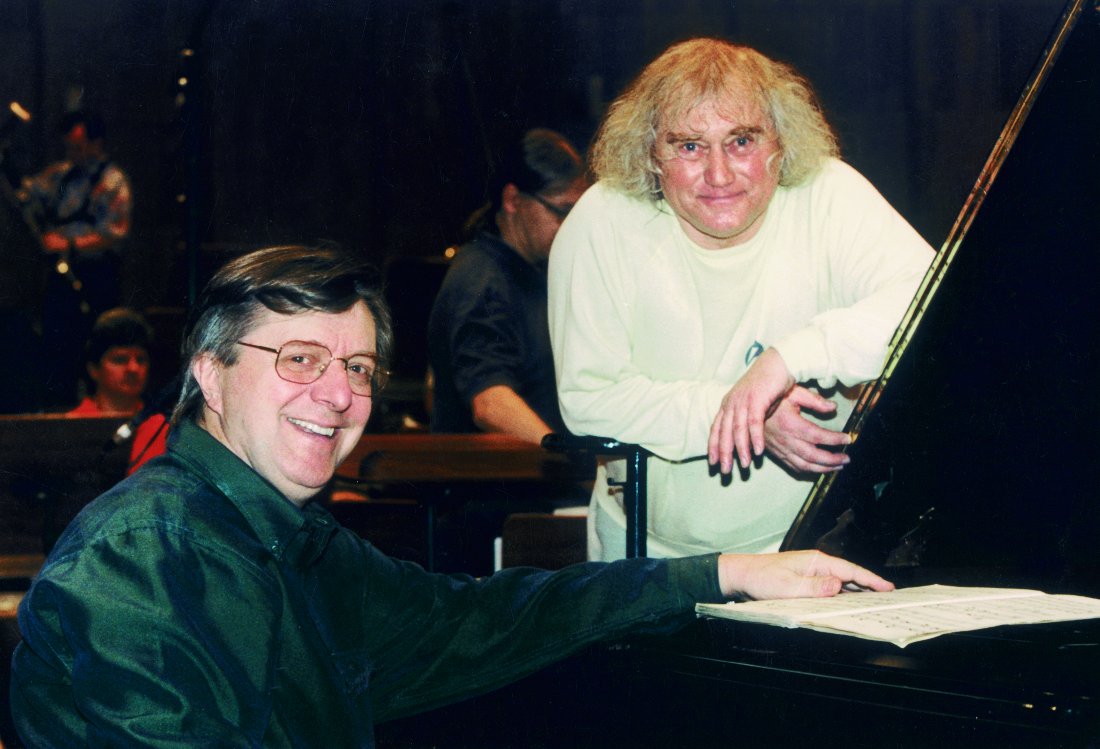
Piotr Paleczny, Jerzy Maksymiuk
The legend of Paderewski’s piano playing had grown since his first concerts in 1884. People tried to find out where his greatness and the spell he put on his audience came from. Tadeusz Szeligowski described it: I suddenly hear the piano change its tone. The tone dematerializes and ceases to sound like a piano tone. I feel how ridiculous it would be to pick on the ritenuto or any other technicality. I feel something more important than proper piano performance is happening. 1 feel the pianist is a man playing the piano and it doesn’t matter what he is actually doing. He has an ability to throw his listeners into ecstasy into some regions hard to describe.
Paderewski’s fame as a pianist eclipsed his output as a composer. He himself attached great importance to composing. He saw it as his vocation, which could bring him – and his Fatherland – international success. He made his debut as a composer at the concert of the Warsaw Music Institute graduates in 1878 with the song Dola (Lot) to the text by Władysław Syrokomla, for voice and piano. But apart from accompanying Helena Potapowicz, who sang his song, Paderewski also gave a solo performance of Grieg’s Piano Concerto in A Minor. He was meant to play the piano till the end of his life, while he stopped composing in 1907, after finishing his last great work, Symphony in B Minor Polonia’, Op. 24. Throughout the thirty years of his artistic work he composed piano pieces. They mostly comprised miniature pieces for piano such as dances and romantic music images. The Minuet from the cycle Humoresques de concert, Op. 14, was about the most popular of them. Paderewski’s larger pieces for piano include Sonata in E Flat Minor, Op. 21, and Variations in E Flat Minor, Op. 23. He also wrote Sonata in A Minor, Op. 13, for violin and piano. Naturally, the piano is employed also in the songs composed to the poems by Adam Asnyk, Adam Mickiewicz and Catulle Mendes. Paderewski gained international renown with his only opera, Manru, commissioned by the Dresden Opera and staged there very successfully in 1901. In a short time it was also staged in Lvov, Prague, Zürich, New York City, Philadelphia, Boston, Chicago, Warsaw, Kiev, Nice, Monte Carlo and Bonn. Paderewski clearly drew from Wagner’s output of music drama. Although his work possessed an individual character, he was criticized for his excessive reliance on the music by the composer of Tristan and Isolde.
But the avantgarde was never Paderewski’s ambition – he undoubtedly belonged to the post-Romantic tradition. It is shown by two compositions on our record: Polish Fantasy, Op. 19, and Piano Concerto in A Minor, Op. 17. which combine the composer’s classic technique with his Romantic emotional approach. More and more greatest pianists add these excellent pieces to their repertoire, because they offer a chance to demonstrate artistic skill and virtuosity, being very lyrical at the same time. Listeners are enchanted by their unusual melodic lines.

Polish Fantasy was composed by Paderewski in July 1893 during his vacation at Yport in Normandy. It was dedicated to Princess Rachel de Brancovan, with whom he had had an affair for three years. Performed at the Erard rehearsal room in Paris, the piece was fully appreciated by Camille Saint-Saëns, who congratulated Paderewski on his remarkable harmonic ideas. The first public performance of Fantasy took place on 4 October 1893 at the Norwich festival; the enthusiastic audience amounted to 8,000 people. Critics compared the composition to the best Hungarian fantasies by Liszt. Based on Polish folk music, it contains no authentic quotations. All its themes were created by Paderewski, using mainly the mazurka and krakowiak forms. Its attractive virtuoso solo part and fine instrumentation won great popularity to the piece. When touring America for the third time, on 4 November 1895 Paderewski played Polish Fantasy. Chopin’s Concerto in F Minor and Liszt’s Concerto in E Flat Major at Carnegie Hall in the concert conducted by Walter Damrosch. Paderewski came back and the city is kneeling at his feet again, wrote The New York Times. The American audience could hear the voice from the beautiful Polish land in Fantasy, much to Paderewski’s satisfaction, for with this music he wanted to remind them of Poland’s existence.
Piano Concerto in A Minor took much longer to be created than Fantasy. Paderewski started to write it in Vienna in 1884, when he studied under Theodor Leschetizky, but he did not arrange it for instruments till the spring and summer of 1888. The work was ready by the end of September. According to the Viennese Music, Theatrical and Artistic Echo, its orchestral rehearsal was held in December in front of a small audience at Erard’s in Paris. Finally, on 8 April 1889, Leschetizky’s wife. Anette Essipoff played Concerto in A Minor in Warsaw. The well-known Warsaw critic Jan Kleczynski wrote that the themes of Paderewski’s composition were lovely and warm in its first, mazurka part, poetic in the Romance and full of passion in the Finale, the orchestra joined the piano in some witty combinations and the solo instrument itself was treated in the grand manner. In the same year Essipoff played the Concerto in Paris, where it was widely acclaimed. A year later the composer performed his own work in London. The local press described it as pervaded by the mood of Polish national music with its proud, knightly and dreamy accents. On 17 November 1891 Paderewski made his debut in America with the Concerto played with the New York Philharmonic Orchestra conducted by Walter Damrosch at Carnegie Hall. The United States was to witness the greatest, dazzling successes of Paderewski the pianist. He ended his first American tour with the same Concerto in A Minor played with the Boston Symphony Orchestra at the Metropolitan Opera of New York City on March 1892. In gratitude for his reception by Americans, Paderewski donated the proceeds from his last concert to the Washington Arch construction fund. The gift was viewed as one more sign of mutual attraction between the Polish and American nations and their shared love of human freedom and democratic institutions.
Mieczysław Kominek
Translation: Elżbieta Kowalewska-Mroczek
Reviews
In the recording by BeArTon both J. Maksymiuk and P. Paleczny, together with the whole team of Sinfonia Varsovia, achieved a fantastic unity of solo and orchestra parts. Although the pianist plays truly romantically, with easy phrasing and almost improvising the cadence of the first part of the Concerto, Maksymiuk delights us with clear, well-considered details of the orchestral part. He perfectly understands his partner and holds a dialogue with him masterfully. (…) The orchestra plays where it should play, weeps, while the pianist creates pathos and polyphonic structures. Making this piece sound more like the eight years younger Concerto in C Minor by Rachmaninoff is an excellent idea. Paderewski becomes an innovator!
BeArTon’s record is another release of this label from the series The Pearls of Polish Music. (…) The album is perfected in every respect: elegant graphic layout, precise and succinct commentary and interpretation on the highest world level. Piotr Paleczny interprets both the Polish Fantasy and Piano Concerto in an excellent way, supported in this by a wonderful orchestra and an outstanding conductor




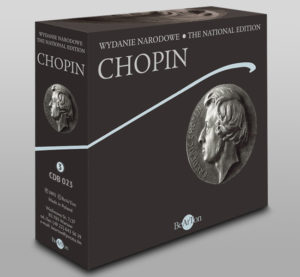
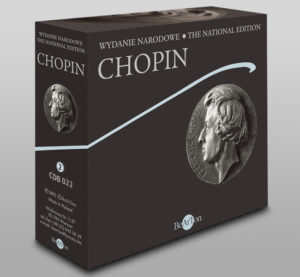
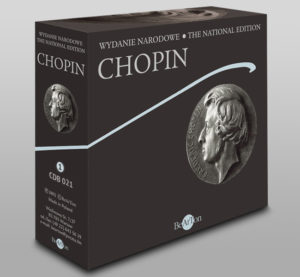
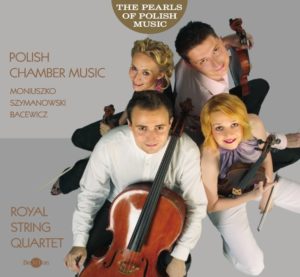
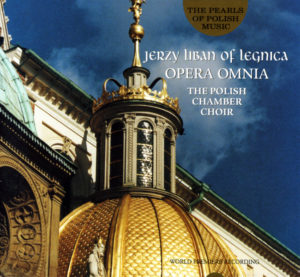
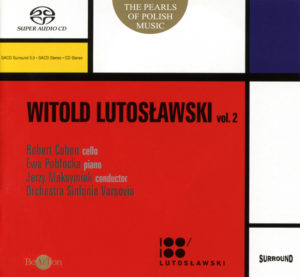
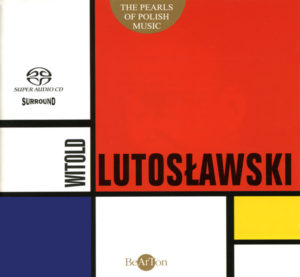
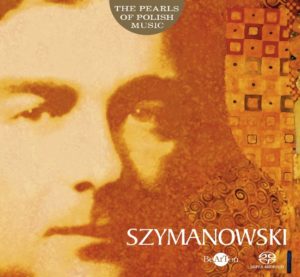
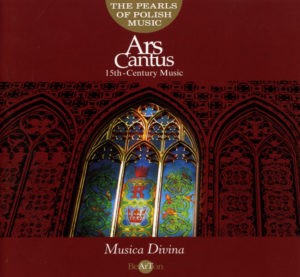
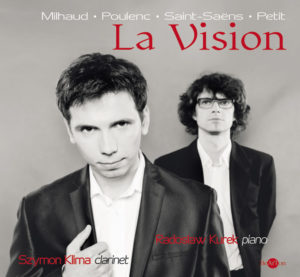
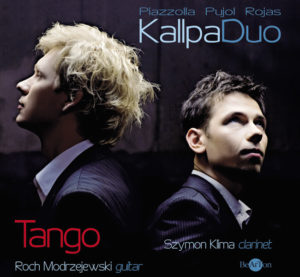
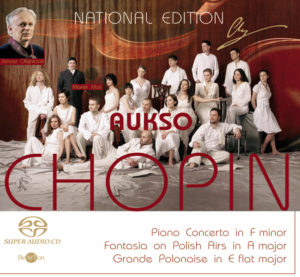
![Chopin – Walce [B] i inne utwory CDB047](https://www.bearton.pl/wp-content/uploads/Chopin-Walce-B-i-inne-utwory-CDB047-A-300x277.jpg)
![Chopin – Pieśni [B] CDB046](https://www.bearton.pl/wp-content/uploads/Chopin-Piesni-CDB046-A-300x277.jpg)
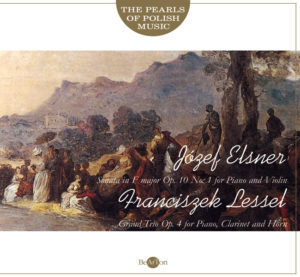

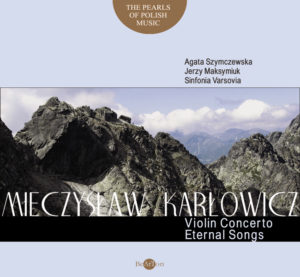
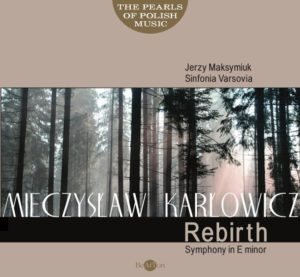
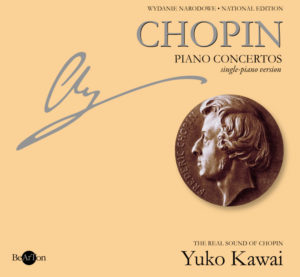
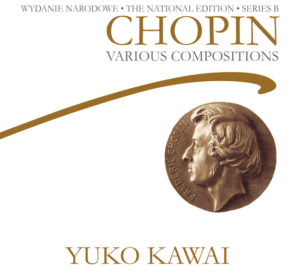
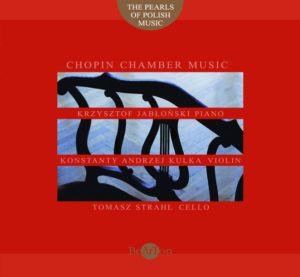
![Chopin - Mazurki i inne utwory [B] CDB038](https://www.bearton.pl/wp-content/uploads/Chopin-Mazurki-i-inne-utwory-B-CDB038-A-300x277.jpg)
![Chopin – Polonezy [B] CDB037](https://www.bearton.pl/wp-content/uploads/Chopin-Polonezy-B-CDB037-A-300x277.jpg)
